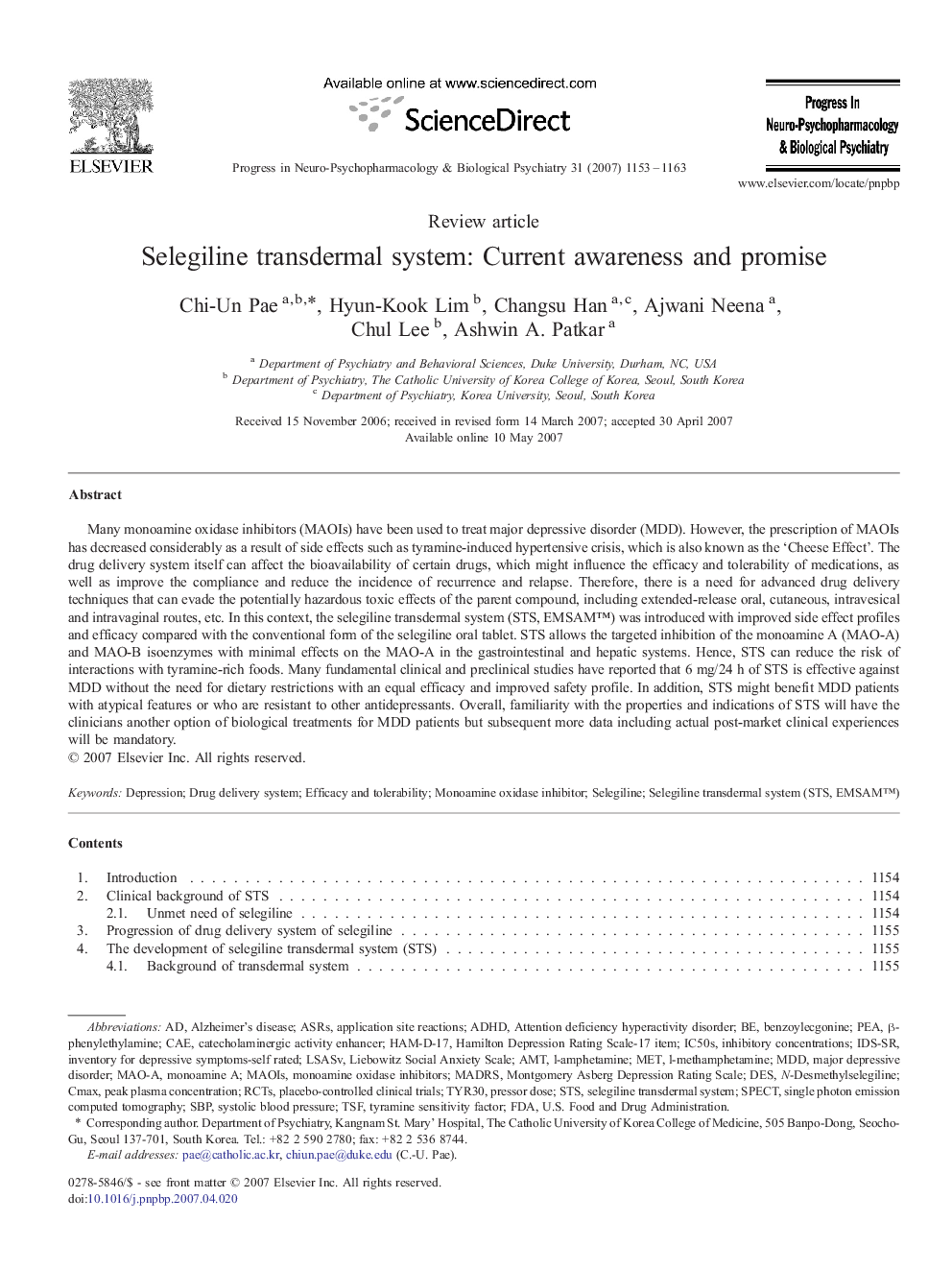| Article ID | Journal | Published Year | Pages | File Type |
|---|---|---|---|---|
| 2566115 | Progress in Neuro-Psychopharmacology and Biological Psychiatry | 2007 | 11 Pages |
Many monoamine oxidase inhibitors (MAOIs) have been used to treat major depressive disorder (MDD). However, the prescription of MAOIs has decreased considerably as a result of side effects such as tyramine-induced hypertensive crisis, which is also known as the ‘Cheese Effect’. The drug delivery system itself can affect the bioavailability of certain drugs, which might influence the efficacy and tolerability of medications, as well as improve the compliance and reduce the incidence of recurrence and relapse. Therefore, there is a need for advanced drug delivery techniques that can evade the potentially hazardous toxic effects of the parent compound, including extended-release oral, cutaneous, intravesical and intravaginal routes, etc. In this context, the selegiline transdermal system (STS, EMSAM™) was introduced with improved side effect profiles and efficacy compared with the conventional form of the selegiline oral tablet. STS allows the targeted inhibition of the monoamine A (MAO-A) and MAO-B isoenzymes with minimal effects on the MAO-A in the gastrointestinal and hepatic systems. Hence, STS can reduce the risk of interactions with tyramine-rich foods. Many fundamental clinical and preclinical studies have reported that 6 mg/24 h of STS is effective against MDD without the need for dietary restrictions with an equal efficacy and improved safety profile. In addition, STS might benefit MDD patients with atypical features or who are resistant to other antidepressants. Overall, familiarity with the properties and indications of STS will have the clinicians another option of biological treatments for MDD patients but subsequent more data including actual post-market clinical experiences will be mandatory.
